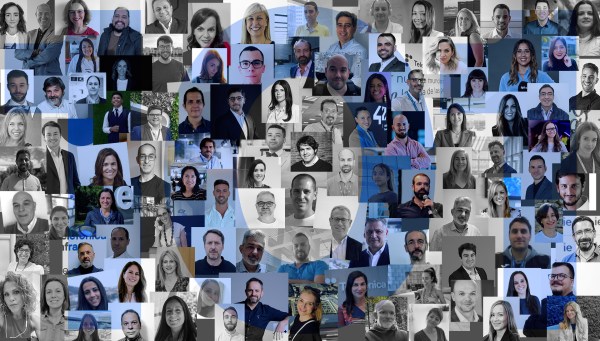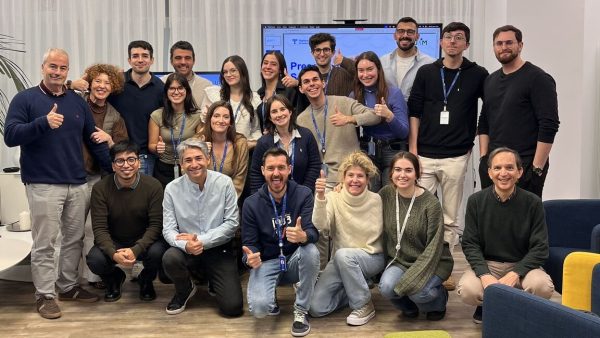perception is so ingrained that the fear of failure often prevents us from taking risks, learning and growing. But does it really deserve such a derogatory connotation, and is it fair to continue to stigmatise something that is an inevitable and essential part of the learning process?
Let’s imagine for a moment that, instead of seeing failure as the end of a journey, we perceive it as an “attempt”, a necessary part of the process towards success. After all, each failed attempt brings us one step closer to our goal, providing us with valuable experiences and lessons. Wouldn’t it be more constructive and healthy to change our perspective, accepting failure as an opportunity to learn and improve?
This article seeks to explore and redefine the concept of failure, moving away from the fear and shame that accompany it. I want to challenge the negative perception that has been built around it and propose a new way of understanding it: as a series of attempts that, although they do not always result in immediate success, guide us towards personal and professional growth.
Road to the Slate: A Journey of Illusion and Disillusionment
I would like to start this reflection on failure with a real anecdote that happened to me when I was 16 years old, still a student.
“Who wants to go to the board and solve the problem?” asked the teacher. Eagerly and naively, I raised my hand and headed for the board, not imagining what awaited me. As I went, I noticed the stares of my classmates, some of whom saw me as a superhero unaware of the danger.
With chalk in hand, I began to solve the problem. Halfway through, however, a shout interrupted my concentration: “What are you doing, Gaspar!” Followed by a series of recriminations: “You don’t understand anything, to do this nonsense you’d better not have gone out…. Go on, go to your place. If you don’t get a move on, you’ll have a hard time this year”.
I returned to my seat feeling hurt, ashamed and promising myself never to volunteer again.
That teacher, if you can call him that, in just three minutes, managed to do two things: first, to sink me emotionally and engrave in my mind that failure is a clumsy thing to do. Second, and perhaps more shocking, he instilled the same fear in the rest of my classmates, making them genuinely terrified of volunteering in the future.
Redefining Failure: The Key to Innovation and Progress
The stigmatisation of failure, far from being an isolated phenomenon, is rooted in a culture that, in many cases, places immediate success on a pedestal and condemns setbacks as signs of ineptitude. This paradigm establishes a direct connection between failure and the perception of incompetence or weakness, thus creating an environment in which those who venture to explore new horizons are often inundated with fear of judgement and criticism.
The social fabric, influenced by narratives of lightning success and instant achievement, tends to neglect the inherent value of learning and growth processes, which often include attempts and challenges. The direct consequence of this mentality is the penalisation of those who risk innovating, trying new things and facing the unknown.
The stigma of failure, rather than being seen as a learning opportunity, becomes an obstacle to personal and professional development. This approach limits people’s ability to learn and grow.
It is time to change how we view failure. Every attempt, even if not immediately successful, is an opportunity to learn and improve. We need to celebrate the courage of those who dare to challenge the norm and try new ideas.
If we stop seeing failure as something negative, we will open the door to more innovation, creativity and personal and collective growth.
From “Failure” to “Attempt”: Transforming the Path to Success
Proposing a shift in focus involves not only altering the way we label our experiences, but also transforming our relationship to the process itself. In this sense, I suggest a transition from the term “failure” to the more constructive and hopeful concept of “attempt”. This shift is not merely semantic; it is an invitation to modify our perception of challenges and difficulties.
Each attempt, devoid of the pressure of instant perfection, should be seen as a valuable step forward. Rather than being seen as a defeat or an insurmountable setback, it is an invaluable opportunity to learn, adjust strategies and move forward with greater wisdom. This approach not only recalibrates our relationship to the creative and developmental process, but also fosters a mindset of continuous growth.
By adopting an “attempt” perspective, we free ourselves from the negative baggage associated with failure and enter a realm where every experience, whether successful or not, contributes to our growth and evolution. This approach encourages us to value resilience, adaptability and the ability to learn as fundamental aspects of our personal and professional journey.
The concept of “intent” invites us to look beyond the immediate results and embrace the process as a whole. Each step, even if it does not take us exactly where we initially planned, brings us one step closer to understanding, improvement and excellence. Thus, the narrative of our efforts becomes a story of steady progress, where each attempt becomes a milestone on the road to sustainable and meaningful success.
Learning by Trying: Inspiring Realities
The narrative of history, which is a veritable treasure trove of experiences and accumulated wisdom, poignantly shows us that learning by trying does not remain in the realm of theory, but manifests itself as a tangible and universal reality. This concept reveals itself not only as an abstract principle, but as a common thread linking the experiences of individuals and societies over time.
Exploring the annals of human knowledge allows us to discover that attempt has been a driving force behind countless achievements, from scientific and technological breakthroughs to sporting triumphs and artistic creations. It is in persistent and courageous attempts that we find the very essence of evolution and progress, marking significant milestones in humanity’s journey.
Throughout history, there are many examples that illustrate how effort is crucial to any path to success. In fields as varied as science, technology, sport and creativity, the story of effort is intertwined with narratives of enduring achievement. These examples underline that the path to excellence is built through courageous and persistent attempts, each of which contributes to personal, professional and global growth.
1. Technological Innovation: Steve Jobs and Apple
Steve Jobs, co-founder of Apple, overcame the “failure” of the 1984 Macintosh launch and continued to innovate, leading Apple to become one of the most successful companies in the world.
2. Entrepreneurship: Amazon and Jeff Bezos
In its early days, Amazon focused only on selling books online. Entrepreneur Jeff Bezos, founder of Amazon, has experimented with numerous products and services over the years. Not all were instant successes, but each attempt contributed to the expansion and diversification of the company, transforming it into the e-commerce giant we know today.
3. Science and Medicine: Alexander Fleming’s Penicillin
Alexander Fleming’s discovery of penicillin was accidental in 1928. While researching bacteria, he noticed that mould in a petri dish had inhibited bacterial growth. This led to the development of penicillin, the first effective antibiotic, which revolutionised the treatment of infectious diseases by saving millions of lives.
4. Cinema: Sylvester Stallone and “Rocky”
Sylvester Stallone wrote and starred in “Rocky” after facing initial rejections. The film, released in 1976, became a surprise hit, winning several Academy Awards and catapulting Stallone to stardom. His perseverance and belief in his vision inspired many in the film industry.
5. Technology and Social Media: Twitter
Before becoming the iconic microblogging platform, Twitter was initially conceived as a podcast service called Odeo. However, after strategic changes, it became a global phenomenon.
6. Fashion: Vera Wang
Renowned fashion designer Vera Wang initially aspired to be an Olympic figure skater. When she failed to qualify, she reinvented herself as a fashion editor and later as a world-renowned wedding dress designer.
7. Science and Technology: Thomas Edison and the Light Bulb
Thomas Edison, the brilliant inventor whose visionary mind brought us the electric light. His path to the creation of the light bulb was marked by thousands of attempts, experiments and, yes, failures. Each failure was not a defeat, but a valuable lesson that brought him one step closer to the innovation that would change the way the world experiences lighting.
8. SpaceX, Tesla and Elon Musk
Elon Musk, with his companies SpaceX and Tesla, has openly shared his experiences of arduous attempts and near-failure. Each stumble was not a dead end, but a bend in the road that led to significant innovations in the space and automotive industry.
9. Sports: Michael Jordan
Michael Jordan was initially rejected from the high school basketball team, but his determination led him to become a basketball legend. With a relentless work ethic, he overcame obstacles to become the greatest player in the NBA, winning six championships with the Chicago Bulls and leaving a legacy that inspires worldwide.
10. Entrepreneurship and Technology: Bill Gates and Microsoft
In the early days of Microsoft, Bill Gates faced considerable challenges as he pursued his vision of putting a computer in every home and office. Together with Paul Allen, he developed key software such as BASIC and then negotiated a crucial deal with IBM to provide MS-DOS, an operating system that became standard for PCs. With their focus on innovation and adaptation, Gates and Microsoft dominated the software industry, laying the foundations for modern personal computing.
12. Science and Chemistry: Marie Curie
Marie Curie, a pioneer in radioactivity research, faced significant obstacles before gaining recognition for her work, becoming the first person to win two Nobel Prizes in different scientific fields.
13. Harry Potter and J.K. Rowling
The literary and creative fields are also steeped in stories of trying. J.K. Rowling, the author of the famous Harry Potter book series, went through initial rejections before finding a willing publisher. Her attempts and persistence are the very essence of the successful narrative that surrounds her literary work.
14. Technology and Video Games: Nintendo and Shigeru Miyamoto
Shigeru Miyamoto, creator of Super Mario and Zelda, faced challenges and failures at first, but his creativity revolutionised video games. From “Donkey Kong” to “Super Mario Bros.” to “The Legend of Zelda”, Miyamoto transformed the industry with innovation in design and gameplay, setting standards that have inspired generations of developers and gamers.
15. Medical Science: Jonas Salk and the Polio Vaccine
Jonas Salk developed the first effective polio vaccine, but faced scepticism before the vaccine became a crucial tool for eradicating the disease.
16. Kentucky Fried Chicken
The founder of Kentucky Fried Chicken (KFC), Colonel Harland Sanders, persevered even though his fried chicken recipe was rejected by more than a thousand restaurants. With determination, he opened his own restaurant in Kentucky, where he refined his unique recipe for chicken cooked with eleven herbs and spices. His focus on quality and persistence eventually led KFC to become an iconic global fast food chain.
These examples, along with many others, illustrate how persistence in trying, even in times of apparent failure, can lead to significant achievements and contribute to progress in multiple fields. This phenomenon underscores the human ability to adapt, learn from adverse experiences and turn setbacks into opportunities.






